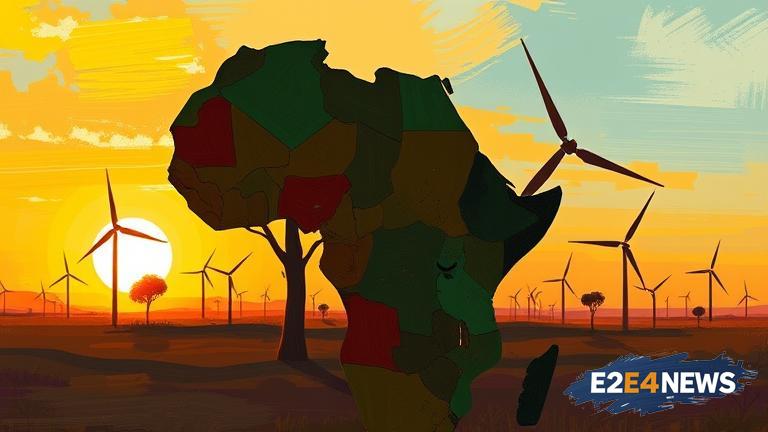The African continent is witnessing a significant shift towards renewable energy, driven by the need to address the pressing issues of energy access, energy security, and climate change. With a growing population and increasing economic activities, the demand for energy in Africa is on the rise. However, the continent’s reliance on fossil fuels has significant environmental and health implications. In response, many African countries are now exploring alternative energy sources, such as solar, wind, hydro, and geothermal power. The cost of renewable energy technologies has decreased dramatically over the years, making them more competitive with fossil fuels. This has led to an increase in investments in the renewable energy sector, with many international companies and organizations committing to support Africa’s energy transition. The African Union’s Agenda 2063 and the United Nations’ Sustainable Development Goals (SDGs) also emphasize the importance of renewable energy in achieving a sustainable and prosperous future. Countries such as South Africa, Egypt, and Morocco are leading the way in renewable energy adoption, with significant investments in solar and wind power. Other countries, such as Kenya and Ethiopia, are also making notable progress in the development of geothermal and hydroelectric power. The use of renewable energy can help reduce greenhouse gas emissions, improve air quality, and enhance energy security. Moreover, it can create new job opportunities, stimulate local economies, and contribute to poverty reduction. Despite the many benefits of renewable energy, there are still significant challenges to be addressed, including the lack of infrastructure, limited access to financing, and the need for policy and regulatory frameworks that support the development of the sector. To overcome these challenges, African countries must work together with international partners to develop and implement effective strategies for the promotion of renewable energy. This includes investing in research and development, building capacity, and creating an enabling environment for the private sector to invest in renewable energy. The development of renewable energy can also have a positive impact on food security, as it can help power irrigation systems, reduce post-harvest losses, and improve agricultural productivity. Furthermore, renewable energy can help address the issue of energy poverty, which affects millions of people in Africa who lack access to modern energy services. The African renewable energy market is expected to continue growing in the coming years, driven by government policies, declining technology costs, and increasing demand for clean energy. As the continent continues to transition towards a low-carbon economy, it is essential to ensure that the benefits of renewable energy are shared equitably among all stakeholders. This requires a coordinated effort from governments, private sector companies, civil society organizations, and international partners to promote the development and use of renewable energy. In conclusion, Africa’s renewable energy revolution is gaining momentum, driven by the need to address the continent’s energy challenges and mitigate the impacts of climate change. With the right policies, investments, and partnerships in place, Africa can unlock its vast renewable energy potential and achieve a sustainable and prosperous future for all. The future of energy in Africa is renewable, and it is essential that we work together to make this vision a reality. The benefits of renewable energy are numerous, and it is crucial that we prioritize the development and use of these energy sources to ensure a sustainable future for generations to come.
